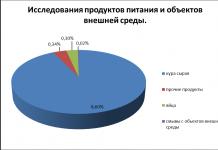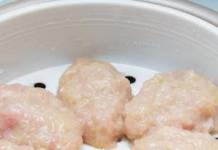Do-it-yourself careful care of plastic windows is the most affordable procedure that allows you to increase their operational period. With the right approach, it can be up to 50 years old.
There are many aspects of care, but one of the most important is the timely lubrication of moving elements. It depends on it how long the fittings will last.
Why do you need lubricant
During long-term operation, a lot of dirt and dust from the street gets into the internal mechanisms. This is especially true for apartments located near the road. Dirt gets inside, which makes it difficult for mechanisms and fittings during opening / closing.
Obsolete grease loses its quality and becomes abrasive, which contributes to accelerated wear of important parts. This can render them unusable. Repairing fittings will cost a significant amount, so prevention seems to be a more reasonable method.
The first sign of the need to change the lubricant is the appearance of a crackle, squeak or clicks during the opening of the doors.
Manufacturers give a guarantee for fittings from 2 to 5 years. For such a period, as a rule, there is enough factory lubricant (but it still depends on the operating conditions). After its expiration, it is necessary to update. Experts advise doing this at least once a year (the recommended season is mid-spring). Residents of large cities should do this more often. If the windows face the road, the fittings will get dirty several times faster due to the abundance of dust and smog.
How to properly lubricate PVC windows
It is easy to lubricate windows on your own - anyone can handle it. This procedure is performed as follows:
- We purchase a lubricant. You can use the universal WD-40 or some special tool.
- We open the doors and remove all the dirt with a rag. We remove difficult dirt with a hard sponge or a special brush (not too rough, as it can damage the surface).
- We grease the brackets, bolts and all metal fittings abundantly.
- For hard-to-reach places, we use the tubular spout supplied with the WD 40.
- If we use a lubricant in a bottle, then apply 2-3 drops of the substance to each element.
This is how do-it-yourself lubrication of plastic windows is carried out. Experimenting with the tools is strongly discouraged. Sunflower oil, petroleum jelly and other household substances are not suitable for this task.

Maintenance of plastic windows includes cleaning. For best results, remember these rules:
- When cleaning the profile, do not use abrasive or powder substances. Such products will roughen the surface and allow dirt to penetrate into the frame structure.
- Do not use acid, solvent or acetone based cleaners. These substances will dissolve the stabilizing layer, and this will lead to discoloration and further damage. It is better to use household substances available in the kitchen (for example, dishwashing detergent).
- To clean the glass, use only products specified for this purpose. A simple sponge can leave scratches.
- Clean the rubber seals at least 2 times a year with an aqueous solution of household products (soap, powder, Comet, etc.).
Five simple rules for caring
Correct prevention of plastic windows will prolong their life. To achieve the maximum operational period, you must adhere to the following recommendations:
- Ventilate rooms regularly. The PVC profile is highly airtight, so it practically does not let air from the street into the room. Therefore, moisture is systematically accumulated in it. It appears in cold areas as condensation and fogging. In case of severe frost, ice may appear. To prevent this from happening, you need to lower the humidity in the room through systematic ventilation.
Important! If the glass unit fogs up inside (between the glass panes), it is defective. In this case, ask the seller for a free replacement.
- Clean drain holes. They can be found by opening the sash or going out onto the balcony. They prevent condensation from accumulating. Often they are covered with visors so that excess moisture does not get into them. Inhabitants of the first three to four floors should monitor these holes at least 3 times a year and, if necessary, remove dirt from them.
- Check the condition of movable structures. Ease of movement is an indicator of the normal state of the valves. The flaps must open and close freely.
- Change rubber seals. The warranty period for these items is 1 to 5 years. After this period, it is better to make a replacement. The cost of this part is low - from 25 to 75 rubles per meter. It is recommended to lubricate it with silicone or glycerin several times a year - this will prolong the operating period.
- Check the condition of the handle, regularly tighten the fixing bolts. To access them, you need to remove the plastic cover. If children live in the house, it is better to install a removable handle.

Transfer to winter (summer) mode
This is necessary for the profile to function normally and to maintain a comfortable temperature in the room. Budget models rarely support this function, it is typical for the middle and high price segment.
To change the mode, do the following:
- We find pressure rollers (their diameter is within 5-8 mm). They are located at the end of the sash at the point of abutment to the frame. There may be several such videos, but you need to find everything.
- We are looking for them at risk. If winter mode is set, it will be directed inside the room. If he is looking at the street, it means that there is a summer regime.
- Further, in order to change the mode, we pull the roller towards ourselves, after which we change the position of the risks.
- We set it to its original position.

This procedure must be done with all the rollers. Some models may require a "hex" to rotate.
Large manufacturers of plastic windows give their products an extended warranty of 20-30 years. However, no guarantee exempts the owners from caring for them: constant lubrication and adjustment (adjustment issues are discussed in detail in the work "How to adjust a plastic window").
When installing PVC windows, installers do not explain to the owners about the need for preventive lubrication of working mechanisms and rubber bands, or they offer their services from the moment of installation, which in most cases does not suit customers. Therefore, the owners of an apartment (house) often do not know where, when and how to lubricate locking mechanisms, fittings and rubber seals.
Let's fill the gap in the knowledge of the owners of metal-plastic windows and consider how to lubricate plastic windows on our own. The process is simple, you can do it yourself at home.
Why lubricate windows
Ordinary housewives know that rubbing parts of assemblies and parts must be lubricated regularly. For example, they, if necessary, process sewing machines or door hinges with machine oil without the participation of a strong half of humanity. For some reason, no one is in a hurry to grease the windows, although their situation is worse than at the doors.
Even a short-term opening of the sash leads to the deposition of street dust on all metal parts, including grease. Every year the amount of dirt in the oil is growing, making it difficult for the locking devices and fittings to work - the abrasive effect of impurities is manifested. If you do not take measures, accelerated wear of rubbing units and striking plates, which can not always be found on sale, may occur.
Attention: the loss of the oil layer leads to excessive friction in the mating parts, which manifests itself in the appearance of extraneous sounds: clicks, grinding or squeaking (often all together) - their appearance requires immediate treatment of all rubbing parts with lubricating oil.
Manufacturers of mechanisms and accessories do not produce interchangeable parts, which leads to an expensive replacement of the entire locking system in the absence of a tiny detail from another company. Lubrication of plastic windows solves several problems at once:
- increases the wear resistance of rubbing parts;
- makes the operation of the locking mechanism noiseless;
- facilitates the process of opening (closing) the leaves;
- protects metal from rust;
- allows the seal to maintain its elasticity, preventing it from stretching or cracking.
If prevention is ignored or done incorrectly, several unpleasant surprises await window owners:
- unpleasant extraneous sounds appear when opening / closing the doors;
- due to the friction of metal on metal, metal dust appears between the rubbing surfaces, which accelerates the wear of parts;
- rubber under a layer of dust quickly loses its elasticity, which leads to the penetration of cold air into the apartment in winter;
- replacement of worn-out parts is not always possible - manufacturers of locking mechanisms and fittings often change the range of their kits, and it is very difficult to find a replacement for a part that was produced 5-6 years ago.
How often to lubricate and at what time of the year
Experts say that permanent grease for plastic windows is needed once a year, preferably in spring or early summer. However, it is difficult to agree with this. The frequency of maintenance work depends on several factors:
- the presence of dust-generating objects near the house: highways, construction sites, etc.;
- the climatic zone of residence, where dust storms are frequent due to soil erosion;
- the frequency of opening windows.
If at least one factor is available, it is necessary to lubricate the seals and hinged joints of windows 2-3 times a year, but always in the warm season. It is advisable to lubricate the seals also after each washing of glass units and plastic (sash, frame), which allows to extend the service life of the rubber bands.
The better to lubricate plastic windows
During preventive maintenance, the question arises: how to lubricate the mechanism of plastic windows, fittings and seals. Let's figure it out.
Mechanism
Almost all known lubricants are suitable for lubricating locking mechanisms:
- Silicone-based lubricants - produced specifically for locking devices for plastic, wooden and aluminum windows. Can be purchased in tubes or spray cans;
- Universal silicone lubricants - used for any mechanisms;
- Machine oil for sewing machines - easy to apply and long-lasting on lubricated parts;
- All types of rubber and plastic neutral (printed on the packaging) mineral, semi-synthetic and synthetic lubricating oils (excludes spindle and oil for diesel engines- too fluid).
Important: some experts consider WD-40 grease ideal for a window mechanism - it creates a protective waterproof film on its surface. The second part is categorically against its use - when low temperatures works poorly as a lubricant, thickens. The editorial staff of the StroyGuru portal did not find any compelling arguments either for its use or against it. Therefore, it is better to refrain from such a purchase and purchase special products, where 3 types of lubricant are presented: for rubbing parts, accessories and seals.
You should not try to find a substitute for the oils listed above. The use of some household or improvised means is strictly prohibited:
- vegetable and animal oils (sunflower, rapeseed, butter, etc.);
- petroleum jelly;
- shoe cleaning products (gel, wax, spray);
- oils for 2-stroke internal combustion engines;
- margarine.
The listed funds thicken in the cold, which complicates the operation of all window systems, and also collects dust well.
Sealing rubber bands
It is a little more difficult to understand the issue than to lubricate the sealing gum on plastic windows. Profile sites recommend several professional and home remedies. The following are classified as professional:
- “Fenoflex” is a product of the German company “Fenosol”, specially created for window seals (according to the creators, it increases their resource by 20-25%);
- Lubricant for sealing gum from window care kits by KBE, Kaleva and others. Sold in cans or bottles made of plastic with special nozzles for squeezing out the lubricant;
- Technical silicone is the most affordable care product for any rubber product, and the best at the same time. It is easy to apply, odorless, transparent. Retains properties at temperatures ranging from -50 to +230 o C.
The WD40 solvent is also classified as a professional product, with which we strongly disagree. Any solvent must be fluid. The fluidity is provided either by kerosene or alcohol (there may be its derivatives) - there is no way to say for sure, since the manufacturer has classified the composition of the product.
Everyone knows about the results of the interaction of both of these substances with natural rubber or artificial rubber - over time, the molecules of the material lose the ability to move relative to each other (elasticity is lost), the product becomes fragile and cracks or stretches.
Practice confirms: a one-time exposure to WD40 seals will not harm them. Long-term leads to the fact that the seals literally jump out of the grooves.
Among the home remedies, it should be noted:
- Glycerin is a colorless viscous liquid, a product of fat saponification. It performs well its functions indoors. However, problems begin outside: it dissolves in water (in the rain), which requires frequent lubrication of the seals from the outside;
- Vaseline - excellently softens rubber. It does not dissolve in water, which protects the seal from rain. Problems lie in the area temperature regime: withstands frost only up to -25 o С, and in heat (over +27 o С) begins to melt. Therefore, in case of significant temperature changes, reapplication of the protective layer is required.
Lubrication instructions are simple:
- the elastic bands are wiped with soapy water with a soft cloth or sponge, after which they are wiped dry with a napkin;
- if the seal has two petals, first the surface between them is lubricated, and then the outer one;
- liquid products (glycerin) are applied with a cotton swab or sprayed if sold in cans;
- viscous substances are applied by hand (silicone, petroleum jelly) or with a brush;
- proper care of rubber bands provides for 2-time lubrication: in spring and autumn.
How to lubricate the fittings of plastic windows
The answer is simple and laconic: by the same means as locking mechanisms.
Instructions for lubricating plastic windows. Manufacturers of window fittings and sash opening / closing mechanisms sometimes indicate the place of lubrication. For the rest of the owners, we give a diagram (see photo below), which shows where the lubrication point is.
Lubrication of the window begins with washing the glass unit and profiles (frame and sashes) with special means and the subsequent cleaning of all elements of the sash and frame from dirt, dust and old grease. To do this, the sash opens alternately in different planes, so that you can first clean and then lubricate the locking devices for different opening modes.
All metal parts are wiped with a sponge, brush or damp cloth, after which they are wiped dry with a dry cloth or cloth. In this case, it is necessary to perform two simple rules a:
- no detergents for metal parts;
- the weather should be calm - dust, soot, volatile fats, etc., can get onto the cleaned surface with the wind.
Lubrication is applied according to a simple algorithm:
- after washing and cleaning, the window is ventilated (dried);
- all moving parts, mounting brackets, bolts and latches are lubricated (methods of applying lubricant are shown in the photo);
- after lubrication, the window is closed and opened several times in each plane - thus, the lubricant is spread over the entire surface of the lubricated parts.
A few tips:
- It is most convenient to lubricate with a syringe.
- Spray cans contaminate the plastic and seals next to the part to which the spray was applied (even with a spout tube) - you will have to wipe it again. Therefore, it is best to avoid them.
- From plastic bottles, it is enough to squeeze 1-3 drops to the lubrication point.
- All parts of one window must be lubricated at the same time.
If all procedures are performed correctly, the window will extend its service life by several years. But it is not worth the risk and prevention should be repeated regularly.
Other preventive measures with plastic windows
During the lubrication of windows, or rather, before it starts, it is advisable to treat plastic profiles with antistatic agents. The result will be immediate - there will be less dust and dirt on the frame and sashes.
Conclusion
Fulfillment of a few simple rules will allow PVC windows to serve for a long time:
- lubricate all rubbing parts and fittings at least 2 times a year;
- take good care of the sealing rubber bands in a timely manner;
- adjust windows for winter and summer;
- carry out all procedures in the warm season in calm weather.
Despite the fact that modern plastic windows are made of high quality materials and provide adequate comfort, they are not insured against damage, wear and tear. This applies to all elements of the product, including rubber seals. An inconspicuous element protects the house from drafts, prevents moisture, dust, and reduces street noise. But seasonal temperature drops, humidity, dirt destroy rubber components. How and with what to process the seal of plastic windows so that it lasts longer? There are special solutions for this.
Why care for seals?
Rubber elements of PVC windows are elastic and are located along the perimeter of the skylight. Due to the tight contact of the sashes with the frame, they are subjected to cyclic compression loads on a daily basis.
No matter how good the element is, over time it will wear out and lose its functions. In production, to delay an unpleasant moment, a lubricant for rubber seals is used, enveloping them with a thin film.
After a couple of years of operation, the protective layer comes off completely, and the user has to solve the problem himself. For this purpose, he needs to purchase some kind of solution for the care of rubber objects.
Features and types of professional tools
A self-respecting supplier of plastic windows has in the offered range of products sets for the complex care of PVC products. Similar products are offered by Robitex, KBE and EdelWeiss, but the first products for rubber components were produced by the German company Fenosol.

Special liquids sold by the listed companies are safe for humans and animals, non-toxic and decomposable. The main ones include:
- FenoFLEX.
The brainchild of the Fenosol company is supplied in 50 ml tubes at an average price of 500 rubles. It does not contain alcohol, which is harmful to rubber.
- Universal silicone grease.
Low viscosity product that lies evenly and resists moisture. A colorless, odorless substance with a heat resistance of -50 to +230 degrees. It can be found in a hardware store or hardware store, it costs about 100 rubles.
- WD-40.
A unique liquid for all occasions, which has found application in the field of PVC windows. Mineral oil (the main component of the mixture) covers the silicone seal on the window with a waterproofing film. The hydrocarbons included in the composition reduce the viscosity. The WD-40 package is complemented by a convenient tube that allows you to apply the substance exactly along the length of the seal. The price of 100 ml of the product is 80-100 rubles.

The quality of the listed lubricants for the care of rubber seals is highly appreciated by consumers, but even professional products have more affordable analogues.
Household seal care products
If it is not possible to purchase imported funds, you can get by with what you probably have in everyday life. Among them stand out:
Colorless, odorless viscous liquid. It is used in cosmetology, performs by-product saponification of fat. From the point of view of chemistry, glycerin belongs to alcohols, however, experience of use says that it is safe for PVC windows. It is available - in the pharmacy you can buy 25 ml of the substance for 10 rubles. The bad thing is that it weakly protects rubber from the effects of precipitation, quickly washing off. 
- Petrolatum.
It softens rubber well, covers it with a dense, colorless layer. It is insoluble in water, therefore it is good as a waterproofing agent. Vaseline has two disadvantages:
- It has low frost resistance (-25 degrees).
- Melts at a temperature of +27 degrees.
This substance will not last long, but petroleum jelly is a good alternative to products that contain alcohol. You can buy it at the pharmacy; 75 ml will cost 30 rubles.
Correct handling of rubber elements
Buying the right product is not enough - it is important to know the key aspects of caring for rubber seals. The user should follow the advice below:
- it is necessary to take care of the elements of PVC windows made of rubber twice a year - before winter and summer;
- first, the seal is cleaned - wiped with a damp cloth, sponge, then with a dry cloth;
- if the seal has petals, they are lubricated first, then the rubber outside;
- when using viscous products, use brushes of different thicknesses;
- having lubricated the sealant, it needs to be allowed to dry for about an hour, after which the window sashes can be closed.
No more easy way extend the life of PVC windows than regularly lubricate rubber seals with high-quality solutions without alcohol. The user, spending only 20 minutes annually on the maintenance of elastic elements, will increase the durability of the plastic structure several times.
https://www.youtube.com/watch?v=WRT4ej5Al9k Video can "t be loaded: Tips for caring for plastic windows (https://www.youtube.com/watch?v=WRT4ej5Al9k)
It is necessary to find out in all the details how to lubricate the rubber bands on plastic windows at the stage of their installation. Plastic windows have become so widespread primarily because they are much easier to care for than wooden ones, they do not require frequent restoration and are easy to use. However, if everything is clear with double-glazed windows - they are washed according to the same principles as in other windows, with fittings too (we grease the hinges in the doors), then the situation with regard to seals is more vague.
People simply forget about rubber bands, and installers do not always report that they require attention. And even if they talk about it, they insist on the use of super expensive means. And rest assured: you will have to buy them from a company dealing with windows, in other places it will be unrealistic to find the named drug.
How to lubricate rubber bands on plastic windows, is it really necessary to do this, is the recommended preparation required and how often processing is required - we will consider all these questions in the material offered for your reading.
Why lubricate?
Seals for plastic windows are made of high quality rubber. The purpose of their installation is to become an obstacle to the penetration of draft, dust, water suspension into the house during precipitation and noise from the street. No matter how good the rubber used for the seals is, it wears out over time, which is facilitated by multidirectional factors.
- Weather. Since the seals are located on the border between a warm house and a cold street, they are primarily affected by the difference between the temperatures inside and outside. Its destructive effect is complemented by dry heat in summer and humid frost in winter. Direct sunlight also negatively affects the elastic bands. Dust for them is also not harmless, especially urban dust, which carries machine exhaust and particles of chemical reagents;
- The second factor that destroys the seals is the constant physical impact on them. They rest only when the windows are wide open, and this does not happen so often;
- When released from the factory, gums are coated with compounds that provide them with a fairly high degree of protection. However, under the influence of the listed factors, the compositions are washed off, erased and in other ways lose their properties. Accordingly, the protection needs to be restored.
What does the chemical industry offer?
Having barely installed plastic windows, and still not knowing how to handle them, people first of all try to buy recommended or semi-professional products as care for them, only gradually, as they get used to double-glazed windows, lowering the bar for their requests.
Consider first the drugs imposed by installers. Their main drawback is that they are not sold separately. Typically, the sealant is included in the PVC window care kit in the complex. In addition to it, it will contain a solution for cleaning windows and a lubricant for fittings. Taken together, such a set costs such an amount that doubts creep in: was it not in vain that I installed a plastic window? However, if you are not too limited in funds, you can refer to the indicated kits.
They are produced by all companies that manufacture windows: KBE, Edel Weiss, Fenosol, ROBITEX and others. All companies assure that the products are non-toxic, slow down the aging of rubber by a quarter, increase its elasticity and resistance to temperatures. Estimated cost starts at $ 20.
Silicone greases for universal purposes will already cost 5 times less in price. Their choice is unusually wide, they are sold in any construction, automotive or utility department / store. The only thing to be vigilant about is the mark on the bottle "for rubber". Those intended for plastic may contain substances that destroy the seals.
Motorists will probably quickly realize that the widely used WD-40 is quite suitable for treating window rubber bands. By the way, the composition was developed as an anti-corrosion agent for spaceships, but has found the widest application in many household areas. The basis of the "Vedashka" is mineral oil, which creates a waterproofing film on the surface to be treated. At the price of WD-40, it is 20-30% cheaper than silicones, and it will last for 10 years for regular seal treatments.
However, all professional advice is overshadowed by the acquired personal experience, which is actively supported by the masters involved in the repair of plastic windows. And in particular - by replacing the seals. Oddly enough, ordinary glycerin, sold in a pharmacy, costing a penny and widely used in cosmetology, proved to be the best as a means for treating gum. Some of its disadvantages can be considered as low water resistance. However, seals are rarely exposed to massive moisture. Condensation or individual cases of precipitation on the rubber bands will not have a serious dissolving effect.
At the same time, it is strictly not recommended to use any creams for the body, hands or face containing glycerin to lubricate the seals. They may contain additives, additives and fragrances that are not very compatible with rubber and will only worsen its quality.
What cannot be used to lubricate seals?
First of all, it should be remembered that any alcohol-containing substances, alkalis and solvents are extremely harmful to them. So the composition of the self-selected means must be very carefully studied from these positions. However, in addition, inexperienced users make a number of traditional mistakes.
- Petroleum jelly is not glycerin. It is absolutely not suitable for lubricating seals. The consequence of its application is a rather rapid cracking of rubber, the loss of its structure and deformation;
- Under no circumstances should edible oils be used. Creamy, rarely anyone guesses to lubricate window gum, but sunflower seems to be suitable for many;
- Baby powders are designed to remove excess moisture from sweating parts of the baby's body. Used to treat seals, they dry out quickly.
You should not experiment too actively: when choosing how to lubricate rubber bands on plastic windows, you must either obediently follow the instructions of their manufacturer, or use the experience proven by thousands of people (for example, glycerin). Otherwise, you risk paying to replace all the seals on your windows. And remember: before you lubricate the gum, you first need to thoroughly wash it with a soap solution, dry it, and only then apply the lubricant.
The guaranteed service life of plastic windows, as declared by the manufacturers, is on average about five years - this is the service life window profile and double-glazed windows. The hardware and sealing elements are covered by a warranty valid for no more than three years.
In reality specifications a plastic window can be significantly extended with proper care, which consists in timely cleaning of dirt and dust, regular lubrication of rubber seals and moving parts of fittings with special means.
Why lubricate plastic windows
- Wear of rubber seals occurs from destructive effects environment - wind, heat, cold, which is accompanied by a loss of elasticity and, accordingly, tightness, which is why the thermal insulation properties are violated. To prevent this problem, rubber emollients should be used.
- Mechanical ones also wear out over time. This happens due to friction during the actuation of the mechanism. In addition, the accumulated dust contributes to strong clogging and grinding of metal elements, so the handle begins to turn badly, the lock stops closing tightly, and a window that is not completely closed becomes the cause of drafts. Fresh grease will help prevent hardware wear.
How often to lubricate windows
- For the first two years after installation, it is possible not to lubricate the fittings, since the factory lubrication of the parts is preserved.
- In the second or third year after installation, you need to regularly perform preventive actions, that is, lubricate the metal elements and rubber lining at least twice a year, preferably at positive temperatures.
- In case of heavy dirt, cleaning must be carried out immediately and, preferably, after each window cleaning, lubricate moving metal parts.
What is window grease
Firms-manufacturers of window products recommend using professional means for PVC and fittings that contain petrochemicals: they will increase the service life of metal parts several times and increase the elasticity of the seal.
There are many lubricants available:
The easiest and highest quality way is to purchase silicone grease in cans, It is easy to spray and does not drip. Foreign brands are preferred over a wide variety of silicone oils, as they are thicker and more effective. When purchasing a silicone fluid, it is important to make sure it is suitable for PVC products.
Machine oil, which is subdivided into synthetic and mineral. But, it must be remembered that the mineral agent has a very strong thickening effect at a low temperature.
For the processing of rubber window gaskets, special preparations are used, can be used inexpensive, but effective remedy- medical glycerin, which is applied to the seal using a soft cloth.
How to properly lubricate plastic windows
When processing fittings, avoid getting the product on the rubber insulation - this will lead to its deterioration. Therefore, you need to know some rules of care.
Step-by-step instruction:
- Thoroughly clean and wash all elements prior to handling, paying particular attention to areas of greatest accumulation of dirt. To clean metal parts, you can use a stiff-bristled brush and then remove the remaining dirt with a damp rayon cloth.
- Lubrication of the fittings includes the processing of all moving parts, therefore it is recommended to inspect the sash from all sides and outline the places requiring special attention. For greater convenience, aerosol lubricants are used, they are carefully applied at a distance of five centimeters, and in case of contact with rubber parts, they are washed with soap and water. Drip means are applied at the rate of no more than two drops per part using a long nozzle or brush. To evenly distribute the applied substance, the sash must be opened and closed several times by scrolling the handle.
- Last but not least, rubber parts are treated with a specially designed liquid. Usually silicone oil is used for seals, it can also be used to treat hardware.
Why not lubricate the fittings
Some resourceful specialists use improvised home remedies for lubrication - herbal or butter, lard or beef fat, which is fraught with consequences:
- This grease will dry out in a short time.
- Vegetable fats leave a trail in the form of organic dust.
- Lubricated parts will further attract dust and dirt.
- The consequence of all this will be the rapid wear of the rubbing parts.
Checking and adjusting plastic window fittings
When the window sash does not close tightly or the handle is hardly turned or blows from the window, you can independently inspect and adjust the mechanism:
- Pressure regulation. A denser clamp is carried out in the cold season and, accordingly, a weak clamp is intended for the summer season. With the onset of cold weather, a draft is especially felt if the window is not pressed enough. To remedy the situation, it is enough to adjust the position of the eccentrics, which are located at the end of the sash, using a hexagon, they are perfectly visible when the window is wide open. By tilting the position of all eccentrics slightly to the left, you can tighten the sash pressing.
- If the action with adjusting the pressure did not bring positive results and the window still blows, it is necessary to replace the seal. There is nothing complicated here, a special recess will open under the old elastic band, where the new one should be carefully laid.
- When turning the handle tightly, when the lubricant has not eliminated the problem, the hinges are adjusted. Also, using a hexagon, the upper and lower hinges are set in different positions until the problem is fixed.
- Elimination of sags and bevels is carried out in exactly the same way. that inevitably occur during operation.
So, regular maintenance of plastic windows will help protect against damage and costly repairs, you only need to thoroughly clean and lubricate the window parts twice a year, and also check the correct operation of the fittings. It won't be too difficult and will keep you out of trouble.
- To clean PVC windows, do not use powder products, acidic or alkaline solutions such as acetone or solvent, this will damage the plastic surface.
- Liquid soap is ideal for removing dirt.
- The best option for lubricating parts is a product specially designed for this purpose, which is not expensive and will last for a long time.
- The installation of PVC products should be entrusted to trusted firms, since the period of its operation depends on the correct, high-quality installation of the window.
- It is important to know: you should not press the new window as tightly as possible, as this will lead to rapid wear of the seal.



































